Committee breaks for lunch
After three hours of questioning, Graham announced the Senate Judiciary Committee is in recess until 12:45 p.m.
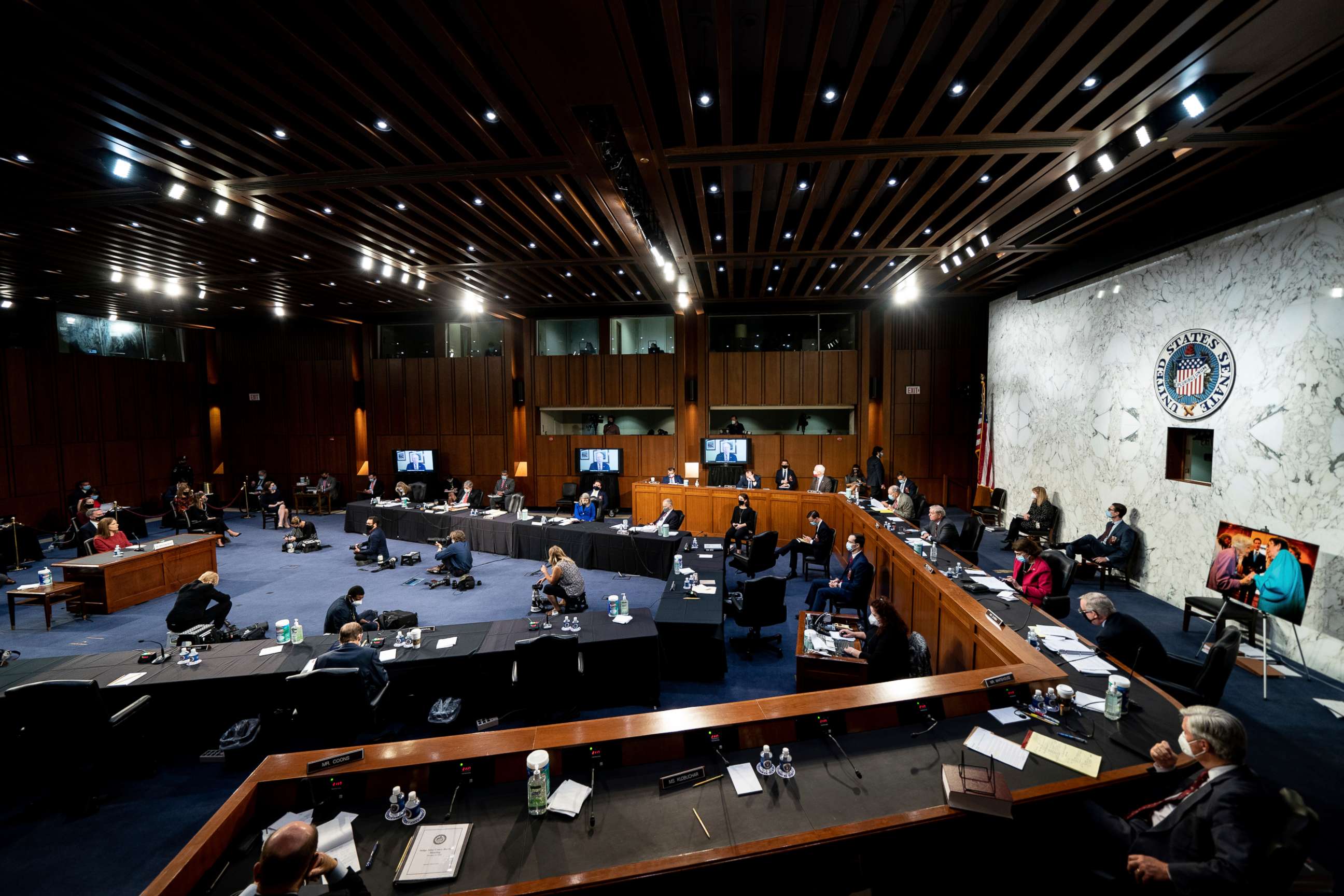
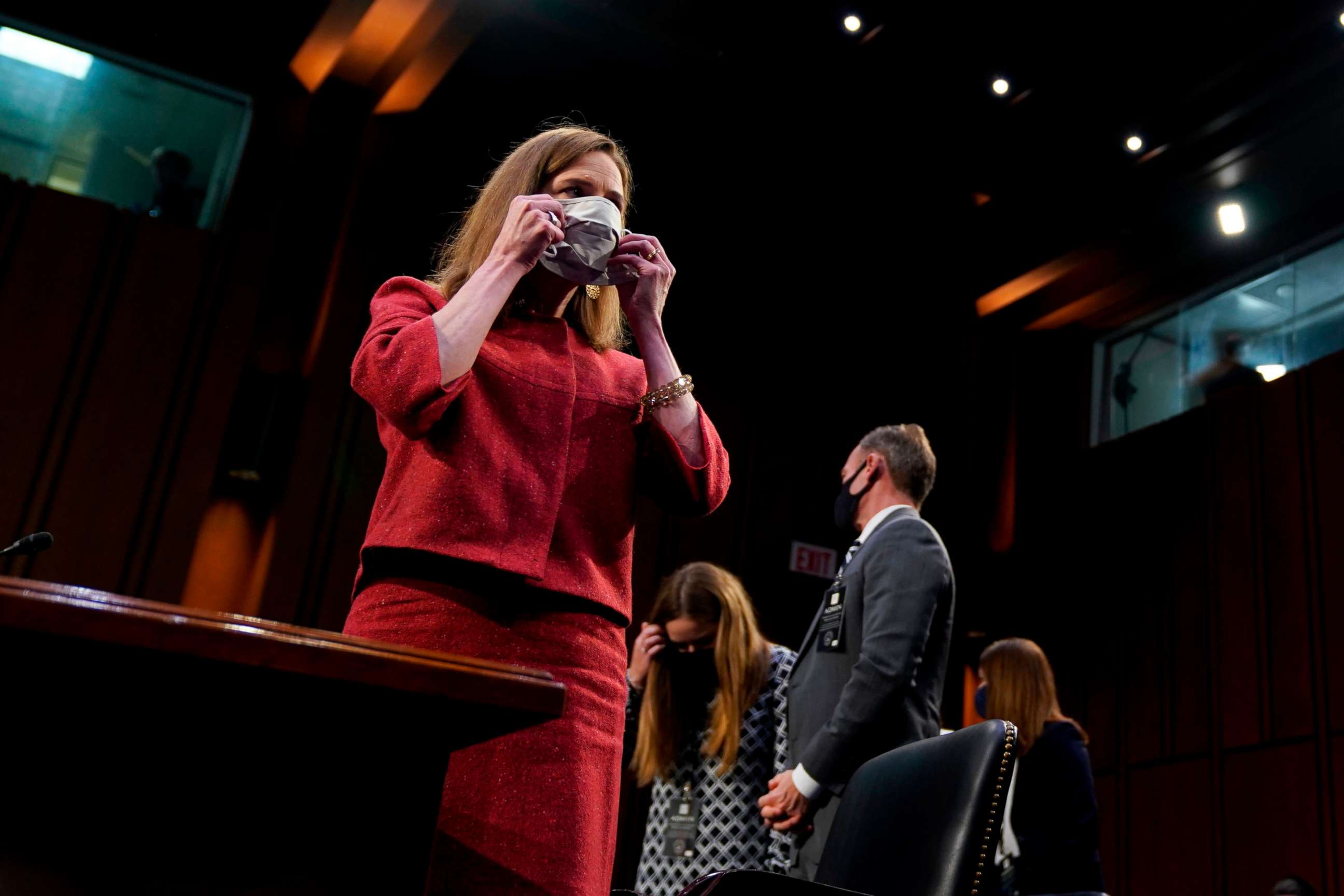
Here are highlights of her more than 11 hours of questioning Tuesday.
The high-stakes confirmation hearings for Judge Amy Coney Barrett continued Tuesday with the Supreme Court nominee facing questions for more than 11 hours.
Senate Republicans are keeping up their push for a final vote before Election Day despite Democratic calls to let voters decide who should pick a new justice.
Trump nominated Barrett to fill the seat left by the late Justice Ruth Bader Ginsburg.
The four days of Senate Judiciary Committee hearings are unprecedented, with some members participating virtually and in-person. Barrett is appearing at the witness table to face questions.
Hearings begin at 9 a.m. each day and will be live streamed on ABC News Live.
In opening statements Monday, Democrats argued the nomination puts the health care of millions of Americans at risk amid an ongoing pandemic and some called on Barrett to recuse herself from any presidential election-related cases. Republicans, who say they already have the votes to confirm Trump's pick, defended Barrett's Roman Catholic faith from attacks which have yet to surface from inside the hearing room.
Barrett, 48, was a law clerk to conservative Justice Antonin Scalia and follows his originalist interpretation of the Constitution. She practiced law at a Washington firm for two years before returning to her alma mater, Notre Dame Law School, to teach. She was nominated by Trump in 2017 to the Seventh U.S. Circuit Court of Appeals and confirmed by the Senate in a 55-43 vote.
After three hours of questioning, Graham announced the Senate Judiciary Committee is in recess until 12:45 p.m.


Sen. Dick Durbin, D-Ill., homed in on Barrett’s dissent in Kanter v. Barr, a gun rights case from 2019. Barrett was the lone dissenter when a Seventh Circuit panel majority rejected a Second Amendment challenge from a man, Ricky Kanter, found guilty of felony mail fraud and prohibited from possessing a gun under federal and Wisconsin law.
Barrett argued non-violent felons shouldn't be banned for life from gun ownership, writing in her dissent that the Second Amendment “confers an individual right, intimately connected with the natural right of self-defense and not limited to civic participation.”
Knowing this, Durbin asked Barrett about the differentiation she made in Kanter between felon voting rights and gun ownership.
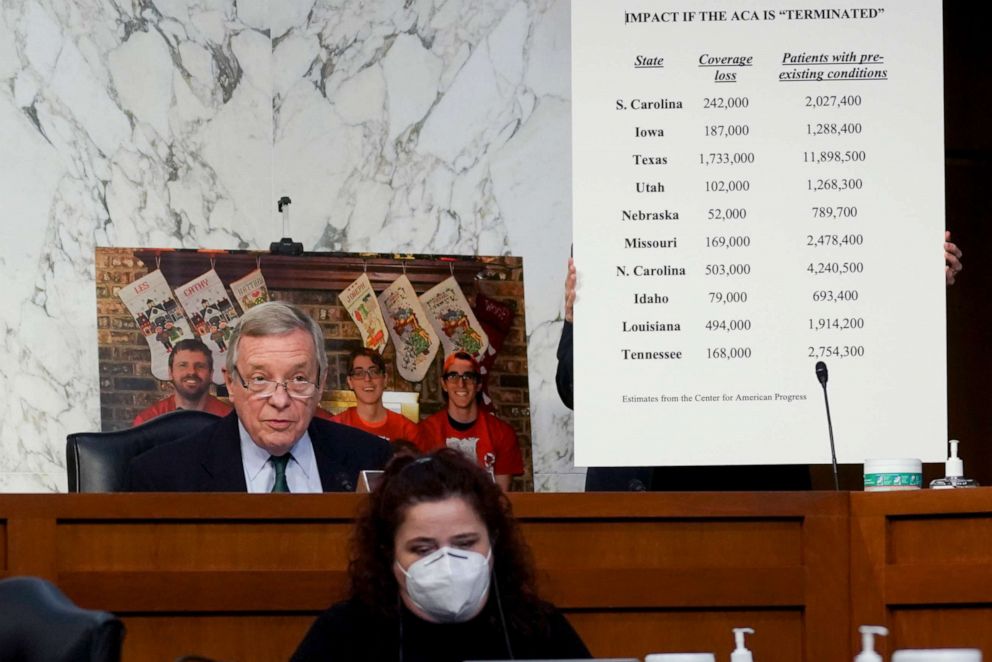
“You are saying a felony should not disqualify Ricky [Kanter] from buying an AK-47 but using a felony conviction to deny them the right to vote is all right?” Durbin asked.
Barrett answered confidently but provided little insight into what her Kanter decision might mean for future voting rights cases.
“Senator, what I said was that the Constitution contemplates that states have the freedom to deprive felons of the right to vote. It is expressed in the constitutional text, but I expressed no view whether it was a good idea, whether states should do that. I didn't explore in that opinion because it was completely irrelevant to what limits, if any, there might be on a state's ability to curtail felon voting rights,” she said.
Sen. Dick Durbin, D-Ill., asked Barrett if she’s seen the video of George Floyd dying in police custody. She said yes.
“What impact did it have on you?” he then asked.
Barrett paused for a moment before answering.
“Senator, as you might imagine, given that I have two Black children, that was very, very personal for my family,” she began.
“Jesse was with the boys on a camping trip out in South Dakota, so I was there and my 17-year-old daughter Vivian, who is adopted from Haiti, all of this was erupting and it was very difficult for her. We wept together in my room and it was also difficult for my daughter, Juliette, who is 10. I had to try to explain some of this to them,” she continued.
“My children to this point in their lives have had the benefit of growing up in a cocoon where they haven't experienced hatred or violence. For Vivian to understand there would be a risk to her brother or the son she might have one day of that kind of brutality has been an ongoing conversation. It is a difficult one for us like it is for Americans all over the country,” Barrett said.
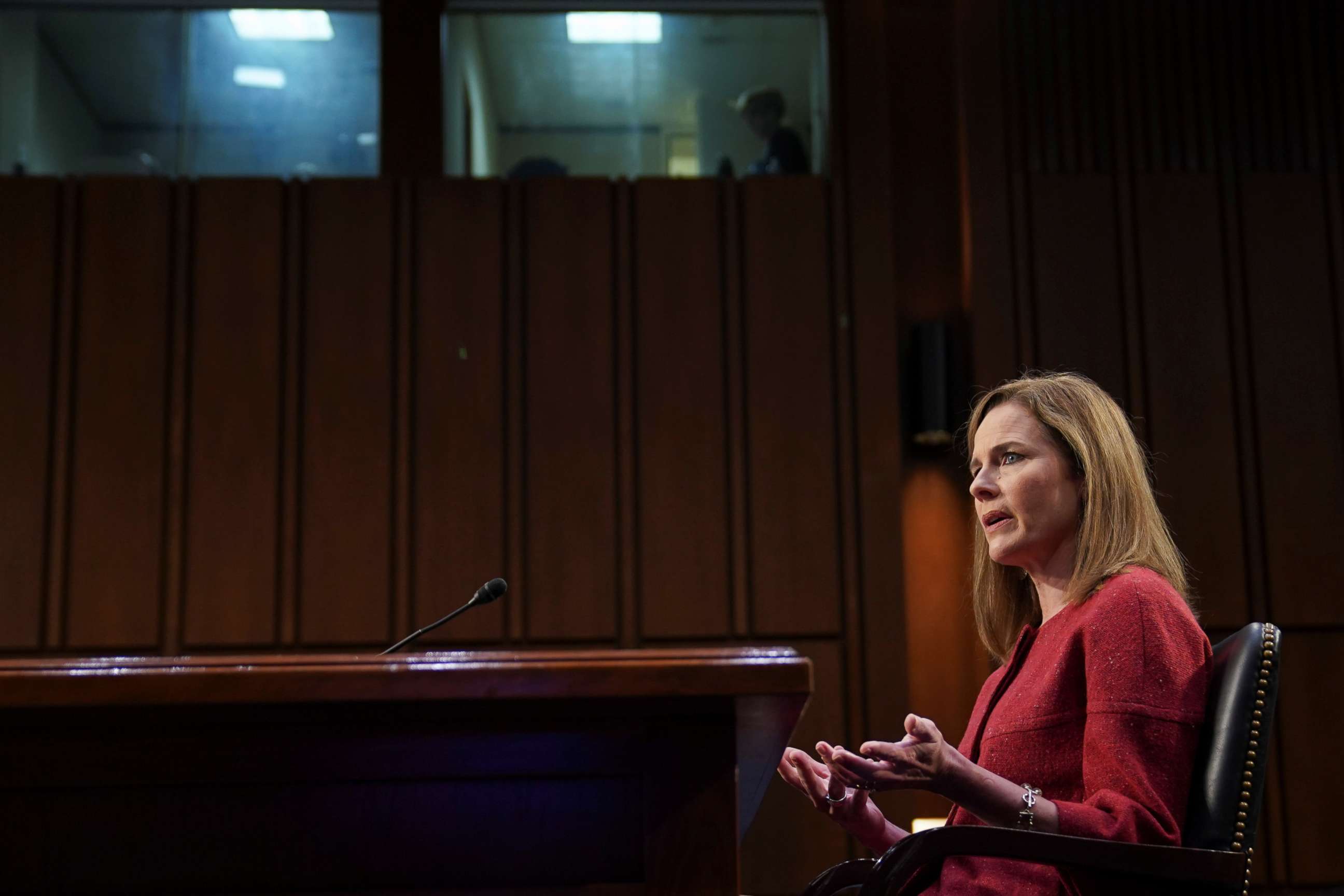
Durbin then acknowledged how some Americans don’t teach children the history of slavey while others say there is implicit bias in aspects of American life and many argue racism is systematic.
“How do you feel?” he asked Barrett.
“I think it is entirely uncontroversial that racism persists in our country. As to putting my finger on the nature of the problem, whether as you say it's just outright or systemic racism, or how to tackle the issue of making it better those things, you know, are policy questions,” she said, avoiding a clear answer.
“They are hotly contested policy questions that have been in the news and discussed all summer. So while, you know, as I did share my personal experience very happy to be discussed the reaction our family had to the George Floyd video, giving broader statements or making broader diagnoses about the problem of racism is kind of beyond what I'm capable of doing as a judge,” she said.
Durbin replied, “Well, I would doubt that. I just don't believe you can be as passionate about originalism and the history behind language that we've had for decades, if not centuries, without having some thought about where we stand today.”
Sen. John Cornyn, R-Texas, deeming the battle in the hearing room “ACA versus ACB,” said predictions from Democrats about how nominees will make decisions is “propaganda in order to try to make a political point.”
“So judge,” he asked, “you're not willing to make a deal?”
“No, Senator Cornyn,” Barrett replied emphatically. “I'm not willing to make a deal, not with the committee, not with anyone. I'm independent.”
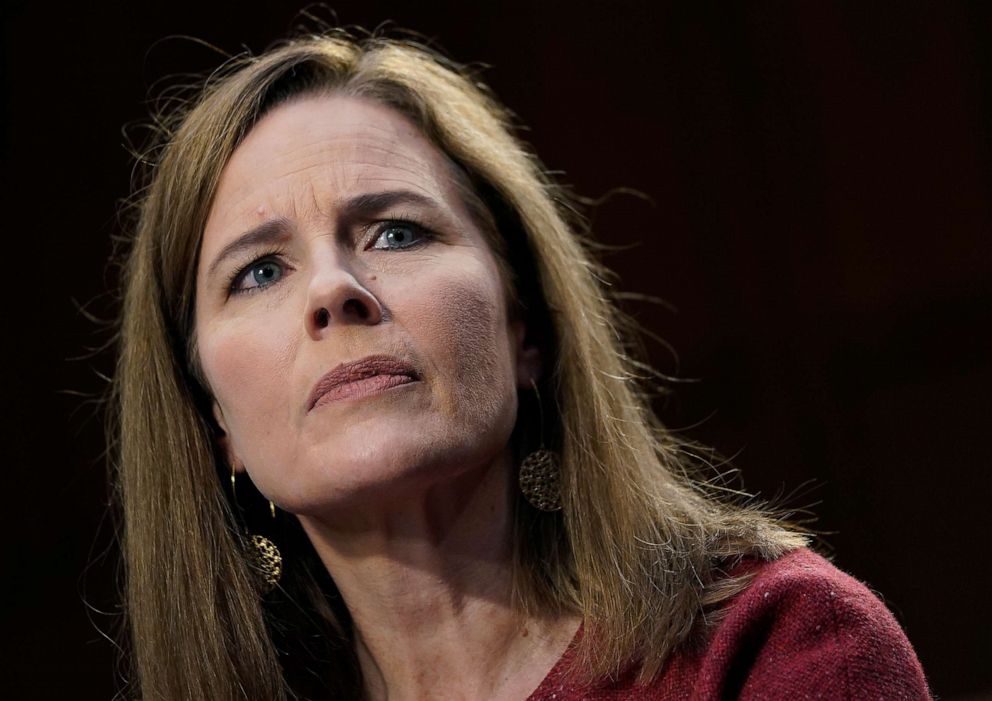
In what became something of a civics lesson, Cornyn asked Barrett why she thinks the American people agree to surrender their right to self-govern and instead live under their elected representatives, the Constitution and “nine people who don't run for election and who serve for life -- why in the world should the American people do that?”
“I think part of the rationale for courts adhering to the rule of law and for judges taking great care to avoid imposing their policy preferences is that it's inconsistent with democracy. Nobody wants to live with the 'law of Amy.' My children don't even want to do that. I can't as a judge get up on the bench and say you are going to live by my policy preferences because I have life tenure and you can't kick me out if you don't like them,” Barrett said.
Asked if she agrees with the belief of Justice Scalia that to be a good and faithful judge, one must resign themselves to the fact that they may not always like the conclusions reached, Barrett said yes.
“It is your job to pass the statutes. It is your job to choose policy. Then it's my job to interpret those laws and apply them to facts of particular cases,” Barrett said. “They don't always lead me to results that I would reach if I were queen of the world and I could say ‘you win, you lose or this is how I want it to be’ because I just don't have the power to impose my policy preferences or choose the result I prefer. That's just not my role. I have to go with what you guys have chosen.”